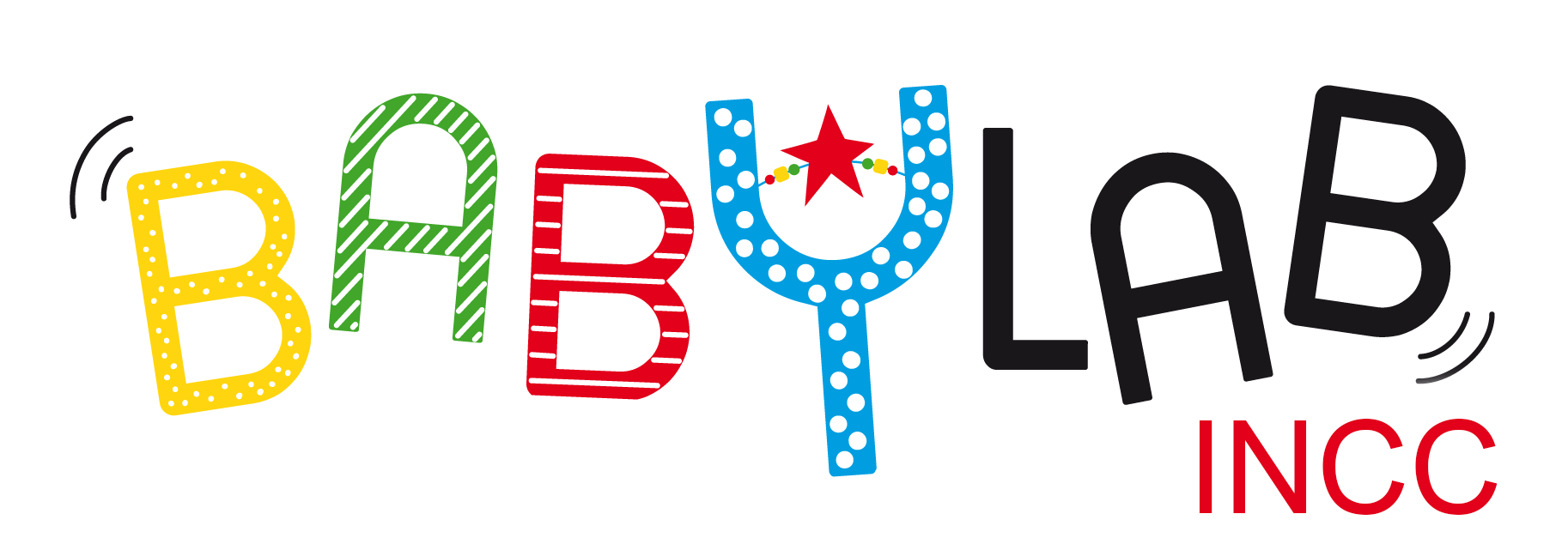Laurianne Cabrera
Research Scientist – CNRS

Learning a language involves identifying the acoustic properties of speech sounds that have a functional role. My research investigates the interaction between the processing of the acoustic properties of speech sounds and language acquisition. How does a listener develop efficient speech processing abilities? To what extent are auditory mechanisms involved in speech perception abilities during development?
During the first year of life infants become better at discriminating the speech contrasts of their native language but they do not show the same improvement for non-native speech contrasts. Several studies are designed to explore whether auditory exposure to a specific language input favors the extraction and processing of certain acoustic cues. In other words, does exposure to a language shape the processing of acoustic information in order to lead to efficient speech abilities?
These studies aim to better understand the relationship between auditory perception and speech perception during typical development from birth to adulthood. Another set of studies also aims to explore the effects of impaired hearing abilities on the processing of the acoustic properties of speech sounds. How do impaired hearing abilities influence language acquisition?
This will hopefully help to define better predictors of hearing rehabilitation efficacy for children with hearing impairments.
Publications list here
Ongoing projects
Linking early phonolexical acquisition and later vocabulary development
In this project, we test the proposal that a crucial milestone in language acquisition is reached when infants discover which sounds (consonants versus vowels) are more important at the lexical level in their native language, leading to an acceleration of subsequent vocabulary development.

Project team lead
Thierry Nazzi
Ticoala
Adaptation of a digital tool for assessing children’s language skills in nursery school.

Project team lead
Thierry Nazzi

Project team lead
Ranka Bijeljac-Babić
Prosodic grouping biases from birth to adulthood in monolingual speakers
This project studies how adults and young children use variations in intensity, duration and intonation to group syllables into word units.

Project team lead
Thierry Nazzi
Characterisation of the processing of acoustic cues and speech processing in noise in normal-hearing and hearing-impaired children with mild to moderate sensorineural hearing loss – SPINTAE
In this large-scale study, we aim to evaluate the processing abilities of different acoustic indices between 5 and 10 years of age in children without hearing problems and those with sensorineural hearing loss.

Project team lead
Laurianne Cabrera
Perception of sibilant consonants and understanding of plurals in hearing-impaired children – LaulauH
The objective is to understand to what extent a deficit in perception of certain sounds, such as “s” and “z”, when they are heard in background noise, can have an impact on oral comprehension of the plural in subject-verb agreement.

Project team lead
Laurianne Cabrera
Development of the auditory system and speech perception in infants- BabySIN
On the one hand, the cerebral processing of different acoustic variations of sounds is studied in 3-month-old infants using the electroencephalography technique. On the other hand, the ability to perceive speech in noise in these infants is measured using an observation technique.

Project team lead
Laurianne Cabrera
Proccesing phonological information while learning and recognizing words
It has been proposed that consonants carry more weight than vowels in lexical processing. Given the timing of acquisition observed in French, we have proposed that this consonant bias emerges in connection with phonological and (proto)lexical acquisition, a hypothesis we are currently testing.

Project team lead
Thierry Nazzi
Predicting language outcomes in typical development
We explore how elementary perception and learning mechanisms are linked to language acquisition. To this end, we test infants on different perception and learning mechanisms, at different stages of their development and up to 2-3 years of age.

Project team lead
Thierry Nazzi
Language acquisition in atypical development
Knowing the mechanisms underlying typical language acquisition also makes it possible to explore whether or not these mechanisms are present in populations with atypical language acquisition and could be involved in their learning difficulties.

Project team lead
Thierry Nazzi
Lexical-semantic development
Our studies aim to understand the neural mechanisms underlying this development in monolingual and bilingual children.

Project team lead
Pia Rämä
Acquisition of phonological biases in lexical processing
We aim to understand how different types of sounds, as well as their arrangements within the words of a language, influence the acquisition and lexical processing of French, German, and Franco-German bilingual speakers.

Project team lead
Thierry Nazzi
Vocabulary growth and sound symbolism
Our aim is to study whether the sensitivity to sound symbolism in infancy is linked to emerging vocabulary skills.

Project team lead
Pia Rämä
Voice familiarity in the processing of word meanings
This project aims to investigate whether familiarity with the speaker’s voice facilitates lexical-semantic processing in infants.

Project team lead
Pia Rämä
Selected Publications
– Buss, E., Lorenzi, C., Cabrera, L., Leibold, L. J., & Grose, J. H. 2019. Amplitude modulation detection and modulation masking in school-age children and adults. The Journal of the Acoustical Society of America, 145(4), 2565-2575.
– Cabrera, L., Bijeljac-Babic, R., & Bertoncini, J. 2018. The development of consonant and lexical-tone discrimination between 3 and 6 years: Effect of language exposure. International Journal of Bilingualism, 1367006918781077.
– Cabrera, L., & Werner, L. 2017. Infants’ and adults’ use of temporal cues in consonant discrimination. Ear & Hearing. 38(4), 497-506.
– Cabrera, L., Lorenzi, C., & Bertoncini, J. 2015. Infants discriminate voicing and place of articulation with reduced spectral and temporal modulation cues, Journal of Speech Language and Hearing Research, 48, 1033-1042.
– Cabrera, L., Tsao, F-M., Liu, H-M., Li, L-Y., Hu, Y-H., Lorenzi, C., & Bertoncini, J. 2015. The perception of speech modulation cues in lexical tones is guided by early language-specific experience. Frontiers in Psychology, 6, 1290.
